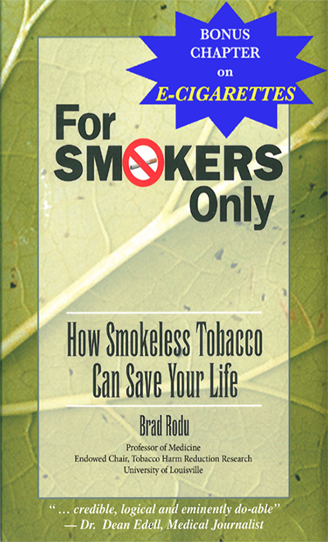The medical establishment has transformed a behavior,
cigarette smoking, into a disease, and now defines how smoking should be “treated”
and “cured”.
The ramifications of this scheme were laid bare last week in
a New England Journal of Medicine report
on a smoking cessation clinical trial (here). The article, “A Pragmatic Trial of
E-Cigarettes, Incentives, and Drugs for Smoking Cessation,” demonstrated one important
fact:
Clinical trials are awful
for assessing human behaviors and preferences like smoking.
The authors, mostly from the University of Pennsylvania,
enrolled 6,006 smokers employed at 54 companies and gave them “usual care”,
consisting of wellness website links and information about the National Cancer
Institute’s free text-messaging program, plus one of four “treatments”:
1. Free
medicines, including nicotine, bupropion and varenicline, plus free e-cigarettes
“if standard therapies failed;”
2. Free
NJOY e-cigarettes;
3. A
reward of up to $600 if smokers stayed abstinent, plus number 2 above; or,
4. A
deposit account up to $600, plus number 2 above.
Here are the results:
| “Treatment” Groups and Successful Quitting at 6 Months | |
|---|---|
| Treatment (number) | Number (%) of Successful Quitters |
| Usual Care (813) | 1 (0.1%) |
| Free Medicines (1,588) | 8 (0.5%) |
| Free E-cigarettes (1,199) | 12 (1.0%) |
| $600 Reward (1,198) | 24 (2.0%) |
| $600 Deposit (1,208) | 35 (2.9%) |
| All (6,006) | 80 (1.3%) |
In all, only 1.3% of smokers quit, ranging from 0.1% with
usual care, to 2-3% for those given financial incentives. In the study, which lasted only six months,
the best “treatment” had a 97% failure rate.
After a full year, the standard period for such trials, one could expect
percentages to be even lower.
While the futility of using clinical trials to gauge smoking
cessation has been demonstrated repeatedly, medical research and regulatory
authorities still demand clinical trial proof – the medical treatment standard
– for the benefits of switching from combustible cigarettes to smoke-free
products.
Just as common sense tells us that a hammer can’t be used to
fasten a screw, the medical community should acknowledge that clinical trials
can’t be used to assess smoking cessation. The reason is simple: smoking is not
a disease. Most smokers don’t want treatment,
cure, nagging or ostracism. They want information about the full suite of their
options, including abstinence and all forms of tobacco harm reduction.
In publishing this uninformed study, The New England Journal of Medicine’s
authors and editors demonstrate that the illness-treatment-cure model of
smoking is erroneous and completely uninformative. The medical/public health community needs to
embrace population evidence from the FDA survey proving that smokers are quitting
with e-cigarettes (here).











